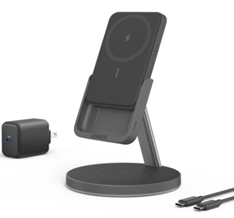OPPO may be best known as a maker of smartphones (perhaps most specifically and often as the owner of OnePlus); however, it is also a company heavily involved in the research and development of comms and mobile tech in general, particularly at its cutting edge and how it relates to 5G and beyond. To this end, the OEM has realized along the way that the 'connected technology everywhere' future is creating a critical existential problem for itself even as it evolves as its proponents tend to imagine.
The same future is heavily based on an ever-growing population of devices or components, all interconnected to execute the functions of their systems, keep them going or keep the data flowing through them. This might require hundreds if not thousands of the electronics involved, all or most of which will need to be in always-on mode, and, thus, might require a corresponding amount of power supply. Therefore, regardless of how ultra-low-energy these devices get, they might become more and more unsustainable as time goes on, and not just because of supply issues like those of today.

However, OPPO asserts that its newly-developed Zero-Power Communication (ZPC) technology might be the ultimate solution for this issue. It has apparently been created as a way to convert radio signals into power electronics can use.
Given that the radiofrequency (RF) energy in question is pretty ubiquitous by now, and is likely to be relatively abundant depending on the number of cell towers, base stations, Wi-Fi access points and even TVs or mobile devices around, the OEM's new kind of power source might indeed be able to keep devices with these ZPC modules present on.
Technology along these basic lines (known as RF harvesting or passive communications) does technically exist already, which OPPO has acknowledged in its introductory ZPC press release. However, it also asserts that its new version ("a hybrid approach" involving the use of RF from cellular sources and the sidelink (a form of harvesting mostly suitable for short-range applications such as those found inside a smart home) technique) has the potential to be more effective and also developer-ready at this point.
To this end, OPPO claims to have a working ZPC system going as a proof-of-concept, and has released the white paper for this new kind of technology. Therefore, while it will not relieve one's future smartphone or its accessories from reliance on their batteries any time soon, this new product might find a place in industrial or municipal smart systems in the near future.









